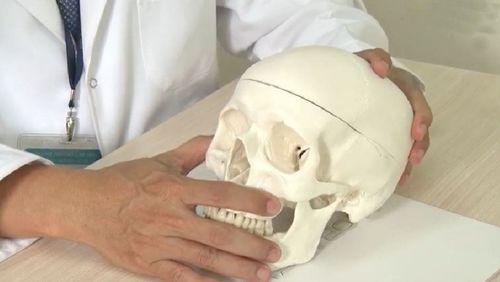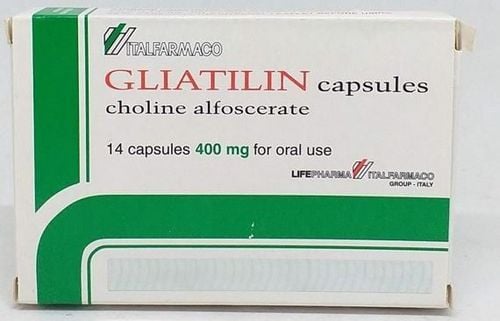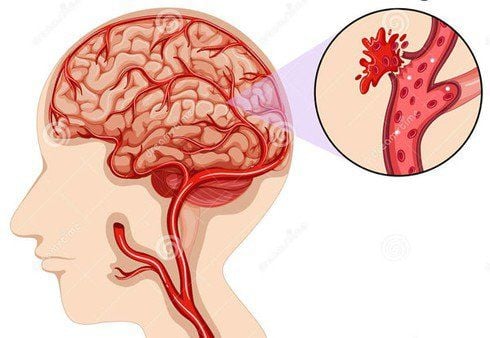This is an automatically translated article.
Traumatic brain injury in children, especially those who are toddlers, can cause serious head injuries. Parents or caregivers need to recognize the symptoms of traumatic brain injury in children in order to promptly detect and take the child to the doctor, to avoid traumatic brain injury in children causing severe sequelae to the child.1. Traumatic brain injury in children
Children have severe traumatic brain injury when directly hit or hit the head. Depending on the location of the impact, the velocity of the injury and the agents of the injury, it will lead to skull deformity or craniofacial fissure.
Depending on where the brain damage is, traumatic brain injury in children will leave sequelae or not. In case of very severe trauma, it can cause epileptic sequelae or weakness, irreversible paralysis...
2. Symptoms of traumatic brain injury in children
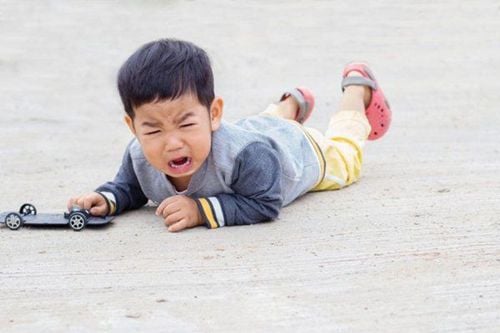
Triệu chứng chấn thương sọ não ở trẻ em có diễn biến tương đối phức tạp
Symptoms of traumatic brain injury in children are relatively complex, may not appear immediately. It may be difficult for young children to speak, while older children may not be able to accurately describe what they are feeling.
Trauma symptoms can last for days, weeks, or longer, after being hit hard, or having an accident or fall that injures the head area.
Symptoms of traumatic brain injury in children are known as:
The child is unusually lethargic, dumbfounded. Children get irritable and angry easily. The child loses the ability to balance and does not walk normally. Babies cry a lot but for no apparent reason. Children change living habits such as eating and sleeping. Children are not interested in toys. In older children, there may be signs of traumatic brain injury in children such as:
Headache, feeling of heaviness in the head, headache, dizziness. Children lose consciousness temporarily. Children's ability to remember and concentrate is impaired. Children with anemia, fatigue, nausea, vomiting. Children with tinnitus, unable to speak clearly. Children with abnormal personality changes, sleep disturbances. Children with depression and psychological problems. Children with loss of taste and hearing.
3. What to do with traumatic brain injury in children?
First, parents and caregivers must be really calm, not afraid, crying, will make the child panic, reassure the child. Encourage the injured child to minimize any movement of the head or neck. If the wound on the head is bleeding heavily, you can apply pressure directly and cover the wound to stop the bleeding. Note, do not squeeze lemon into the mouth when the child has a convulsion. Immediately take the child to a hospital specializing in neurosurgery to be examined and consulted by doctors. In case of need, the child may need to be hospitalized for monitoring. In case of traumatic brain injury in a child causing unconsciousness, when giving first aid, it is important to note:
Do not move the child unless the child is in an emergency situation, because moving may cause greater complications for the child. with traumatic brain injury, spinal cord or other related trauma. Parents need to protect their children from any potential dangers at the scene. Monitor the child's airway and breathing until an ambulance arrives. If the child is breathing poorly due to a problem with the airway, carefully tilt the child's head back and support the child until his or her breathing returns to normal. If the child stops breathing or has no pulse, CPR may be needed.
4. When should an X-ray or CT scan be needed in children with traumatic brain injury?
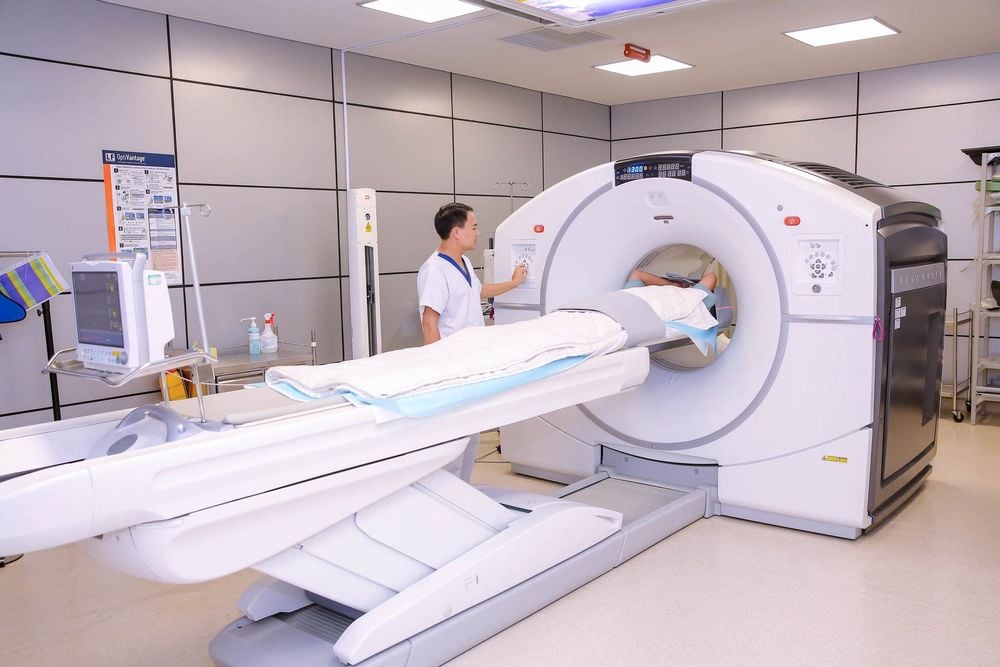
Việc chụp X-quang hoặc CT scan chỉ nên thực hiện khi chấn thương sọ não ở trẻ em gây ra các triệu chứng chảy máu hoặc bất tỉnh,...
An X-ray or CT scan should only be done when a traumatic brain injury in a child causes the following symptoms:
The child is unconscious after the injury The child has bleeding or water from the nose and ears On the child's scalp there is a large hematoma or a large laceration caused by a sharp object... Diagnosis of traumatic brain injury in children also includes factors such as:
Monitoring changes in consciousness Visit the child repeatedly to look for symptoms. neurological disease
5. Monitoring traumatic brain injury in children
In some cases, traumatic brain injury in children has no signs when examined, the child will be sent home for observation for about a week, after that, the child will be re-examined if one of the symptoms is present. symptoms such as:
Crying a lot Headache, nausea or vomiting a lot Convulsions of hands and feet Children when awake, when they are in a coma, they do not wake up when they sleep, they have bleeding or water in their nose and ears, Children are weak, their arms and legs are paralyzed.
6. Prevention of traumatic brain injury in children
The cause of children falling and causing injury is mainly due to the carelessness of the caregivers and the curiosity and hyperactivity of young children. Therefore, to prevent traumatic brain injury in children, it is necessary:
Always have someone to look after and supervise young children. When there is no babysitter, the baby should be placed in a wooden cot. Should be fenced or guarded by the bed, stairs, window or balcony. There should be enough light on the steps or stairs for easy observation. Teach children not to push and climb dangerous places. When children know how to turn, crawl, sit, sit, children should not be left alone in bed or hammock. Children should not be allowed to stand on a chair or unsteady place. The floor should not be slippery and wet. Do not play dangerous games like tossing children. Do not let small children (under 10 years old) look after children under 3 years old. Traumatic brain injury in children can cause serious sequelae, even death, so parents and caregivers need to be careful and pay attention to prevent children from falling and injury. .
Vinmec International General Hospital is one of the hospitals that not only ensures professional quality with a team of leading medical doctors, modern equipment and technology, but also stands out for its examination and consultation services. comprehensive and professional medical consultation and treatment; civilized, polite, safe and sterile medical examination and treatment space.
Please dial HOTLINE for more information or register for an appointment HERE. Download MyVinmec app to make appointments faster and to manage your bookings easily.




